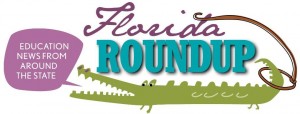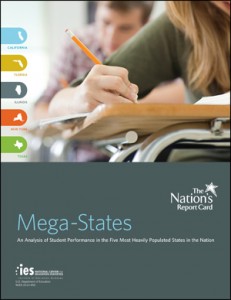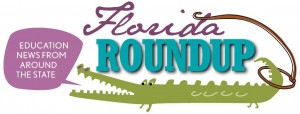 Editor’s note: This commentary from Byron Schlomach, who served as director of the Center for Economic Prosperity at the Goldwater Institute, appeared Wednesday on the Oklahoma Council of Public Affairs’ website.
Editor’s note: This commentary from Byron Schlomach, who served as director of the Center for Economic Prosperity at the Goldwater Institute, appeared Wednesday on the Oklahoma Council of Public Affairs’ website.
People love contests. We have spelling bees, chess tournaments, video game contests, and poker tournaments, just to name a few that are non-physical. Then there are all the sports, too numerous to list but that include football, basketball, hockey, swimming, soccer, and a host of others.
When it comes to sports, nearly a third of the daily television news is often devoted to these contests. Not everybody enjoys every contest, but humans love participating in them, and we love to watch them. One likely reason is that we enjoy the competition inherent in contests. We strive to be better when we directly participate and want to see the contestants we root for get better. That’s the blessing of competition—striving for better, getting better, being better.
Competition in markets works the same magic, and as a result, we all benefit. Domino’s Pizza rebooted their pizzas several years ago because they were losing to the competition. Their pizzas got better. And every pizza consumer benefited.
Competition boosts quality and it boosts efficiency, because the best possible outcome for consumers, and the outcome they choose when it’s possible, is to have both increased quality and decreased prices. And in the process, producers—all producers—do their best to meet such expectations. They do their best to get better.
Competition works in an education context, too. Numerous studies, many published in academic journals, have looked at the impact on public schools that are subjected to private-school competition when school-choice programs are implemented. The overwhelming evidence—and the outcome easily anticipated by all but the most dedicated ideologues—shows that when public schools cease to be monopolies, they improve, at least as evidenced by their students’ standardized test scores.
To continue reading, click here.
Students in Ohio's private school voucher program make less academic progress than their peers in public schools. But the program has a positive effect on public school performance, perhaps because it spurs competition. While the program is aimed at mostly disadvantaged students from struggling public schools, it tends to attract the better-off students within that group.
In short, the key findings from a new, deep dive into the Buckeye State's EdChoice program undercut some of the usual talking points on both sides of the school choice debate.
The report, published last week by the Thomas B. Fordham Institute, is the first study of Ohio's largest voucher program based on individual test results. The study looked at data through the 2012-13 school year for a program that serves some 18,000 students.
The research was done by David Figlio, a researcher who's well known in Florida school choice circles and previously performed evaluations of Florida's tax credit scholarship program*, along with Krzysztof Karbownik, a postdoctoral research fellow at Northwestern University.
Their findings have implications not just for Ohio, but for private school choice programs in other parts of the country. Here's a look at what the study found, and why it matters.
The results
Student disadvantages
Ohio's voucher program is targeted at students who attend public schools that score low in the state accountability system. Students who use vouchers tend to be economically disadvantaged, but compared to students who qualify for vouchers, the ones who actually use the program tend to be better off, both academically and socioeconomically. (more…)
Speaking to school choice die-hards Monday, Indiana Gov. Mike Pence took aim at a common criticism of expanded learning options and encouraged supporters to make teachers part of their case.
“Let’s be very clear in this debate … iron sharpens iron,” Pence told several hundred people gathered at the fourth annual American Federation for Children summit in Washington D.C. “When you empower parents to choose the public, the charter, the private school of their choice, all of education gets better because of competition.”
Pence, one of several keynote speakers for the two-day event, reeled off a suite of ed stats from Indiana. Since the introduction of that state’s voucher program two years ago, test scores and grad rates have continued to rise while achievement gaps have continued to narrow, he said. “The progress we’ve made recently doesn’t appear to be slowing down” because of more choice, he said.
Pence signed an expansion of the voucher program into law earlier this month. He told the AFC audience he’s going to continue to push for more school choice and other reforms because, in part, “I believe in Indiana’s teachers.”
He noted his wife is a teacher, and said some of their best friends are public and private school teachers.
“America has some of the best teachers in the world. Some of the most courageous, decent, caring, selfless men and women in our society are in classrooms today. I submit to you that as we move forward in this debate, we need to speak (about) teachers,” he said. “We believe in giving parents choices because we want them to be able to choose the best school for their children, knowing the teachers will rise to the challenge, as they’ve certainly done in Indiana.”
Charter schools. Brooksville's first charter school, one with a STEM focus, will open this fall, reports the Tampa Bay Times. Competition from charter schools is forcing the Palm Beach County school district to think harder about its needs and priorities, reports the Palm Beach Post. Charters are also sparking debate among Palm Beach school board members about how much help they should give struggling charters, the Post also reports. An op-ed in the Miami Herald raises concerns about charter schools' diversity and financial incentives. The Sarasota Herald-Tribune profiles the principal of the Imagine charter school that is trying to break free from the parent company.
Magnet schools. The Tampa Tribune applauds the Hillsborough school district for creating a magnet tied to the maritime industry.
Alternative schools. Troubled girls get a fresh start at a sheriffs' youth ranch in Polk County. Orlando Sentinel.
 Tax credit scholarships. Great back-and-forth between scholars Kevin Welner at NEPC and Jason Bedrick at Cato, with Florida's program a big part of their debate. Cato at Liberty.
Tax credit scholarships. Great back-and-forth between scholars Kevin Welner at NEPC and Jason Bedrick at Cato, with Florida's program a big part of their debate. Cato at Liberty.
School choice. It's often partisan. Sunshine State News.
Parent trigger. Education Commissioner Tony Bennett raises a constitutional question. The Florida Current. (more…)
Indiana: Republican lawmakers scale back a proposal to eliminate a requirement that students attend public schools for one year before becoming eligible for a private school voucher (Associated Press). They pass it mostly along party lines in the House (Associated Press). They're advancing a proposal to switch administration of the voucher program away from newly elected Superintendent Glenda Ritz (Associated Press). They're also considering a Democratic proposal to give school districts with more than 50 percent of their students in charter schools the ability to approve new charters (Post Tribune).
 New Hampshire: The state House votes to repeal the tax credit scholarship program passed into law last year over Gov. John Lynch's vote (New Hampshire Public Radio).
New Hampshire: The state House votes to repeal the tax credit scholarship program passed into law last year over Gov. John Lynch's vote (New Hampshire Public Radio).
Iowa: The state's Catholic bishops push for vouchers (Iowa Radio).
Texas: Senate Education Committee Chairman Dan Patrick, R-Houston, files legislation to lift the cap on charter schools and create a new body to authorize them (Texas Tribune). More from the Austin American Statesman and the News-Journal. Patrick's proposal for tax credit scholarships isn't getting a warm reception from fellow lawmakers (San Antonio Express News). Thousands of people turn out for a Save Our Schools rally to restore education funding, reduce standardized testing and oppose vouchers and charter schools (KVUE.com)
Alaska: A debate over a proposed constitutional amendment that could open the door to private school vouchers is heating up (Anchorage Daily News). The chair of the Senate Education Committee says his committee will still hold hearings on vouchers even though it will no longer be considering a bill on the proposed amendment (Alaska Public Radio News).
California: The race for three seats on the L0s Angeles Unified School Board has drawn national interest - and financial support - due to three candidates who favor parental choice, charter growth and data-based teacher evaluations (Los Angeles Daily News).
Idaho: Lawmakers propose measures to allot charter schools $1.4 million in facilities funding and allow colleges, universities and nonprofit groups to authorize charter schools (Idaho State Journal). More from Idaho Education News.
Georgia: Amid the debate on parent trigger laws and charter schools, one education advocate ponders: Whose responsibility is it to educate a child — society’s or the parent’s? (Atlanta Journal Constitution). The Georgia Legislature considers an expansion of the tax-credit scholarship program (Rome News Tribune). (more…)
 For the second time this week, a credible, independent analysis shows Florida students leading the pack in progress.
For the second time this week, a credible, independent analysis shows Florida students leading the pack in progress.
Between 1992 and 2011, Florida students made bigger gains than students in four other “mega states” in fourth- and eighth-grade reading and fourth-grade math, according to a report released Thursday by an arm of the U.S. Department of Education. In each case, they moved from below the national average to meeting or exceeding it. Low-income and minority students in particular showed traction.
“There is something real going on there,” said Jack Buckley, commissioner of the National Center for Education Statistics, according to Education Week.
The center’s comparison followed Wednesday’s College Board report that showed Florida continues to climb the charts on Advanced Placement exams. The Sunshine State now ranks fourth in the percentage of high school graduates passing AP exams. Over the past decade, it ranks second in progress.
Broken-record alert No. 1: Florida’s trend lines shouldn’t be a surprise, given reports like this, this, this, this and this in the past year alone. Yet there remains a lingering perception, cultivated by critics, that Florida’s public schools are sub par and stagnant.
For Thursday’s report, the center for the first time compared scores from Florida, California, Texas, New York and Illinois – the states with the biggest student populations and arguably the biggest challenges. It used results from the National Assessment of Educational Progress, a battery of tests better known as “The Nation’s Report Card” and considered the gold standard among standardized assessments.
In eighth-grade math, Florida students made gains but remain below the national average. Elsewhere in the report, they were singled out often. (more…)
For their project, Gussie Lorenzo-Luaces and three classmates at Deer Park Elementary in Tampa, Fla., wanted to find out what kind of paper allows a paper airplane to fly the farthest. After five trial runs, they determined copy paper, with its smooth surface and stable weight, worked best.

Gussie Lorenzo-Luaces, a third-grader at Deer Park Elementary School in Tampa, was one of more than 2,000 students participating in the 33rd annual Hillsborough Regional STEM Fair last week.
The boys’ exhibit was among more than 1,800 presented at last week’s 33rd annual Hillsborough Regional STEM Fair, which featured 2,000 students from district schools, charter and private schools, and home schools.
That diversity was a big plus for Gussie’s mom, Susie, who was curious where other students in the county registered on the science track.
“I just feel they don’t need separation,’’ she said. “I like seeing them all together.’’
Increasingly, though, Hillsborough students are not all together in academic competitions.
In the past year, district officials have begun excluding charter schools from some districtwide contests, including Battle of the Books, a reading competition, and the Math Bowl and Math League for elementary and middle school students.
The reasons for the splintering are not clear. But everything from cost, to fear of competition, to a desire for charter schools to be more independent, has been suggested. At the least, the move points to potential pitfalls as school choice options mushroom across the landscape – even in a district with a choice-friendly reputation like Hillsborough.
“They’re all our children,” said Lillia Stroud of King’s Kids Academy of Health Science, a new charter in Tampa. Stroud said she can relate to the district’s concerns, but “separation at any level is disheartening.” (more…)
Sad news: Arlene Ackerman, a big-city superintendent who became a vocal supporter for expanded school choice, died over the weekend.
Ackerman headed the school districts in Washington D.C., San Francisco and Philadelphia before retiring in 2011. In her wake, she left a stunning announcement in an op-ed for the Philadelphia Inquirer: Real education reform, she wrote, won't come from within because teachers unions, politicians and others vested in the system won't budge. The solution, in her view: A lot more choice.
Last May, in a podcast with redefinED, Ackerman talked in more detail about her evolution on school choice, including a turning point when she realized the academic trend lines just weren't rising anywhere near fast enough. She said she wrote an email to hundreds of friends and colleagues before the op-ed was published, to give them a heads up and make them think: "I hope it provided an opportunity for people I know and respect to think about why somebody like me, who spent so many years within the traditional public school system fighting for radical change, would embrace charters and vouchers for low-income families,” she said.
Most of her colleagues didn't write back, but Ackerman was undeterred. More choice "will put pressure for real reform to take place because there’s competition," she said. "Let’s face it: This country is built on competition. And it’s good.”
Charter schools. The Tampa Tribune writes up the latest report on charter laws from the National Association of Public Charter Schools and quotes Robert Haag, president and CEO of the Florida Consortium of Public Charter Schools: "You want choices for your child's education, just like anything else in life. You don't want to be stuck just going to Publix. You want to be able to go to Winn-Dixie or Whole Foods or any of those places."
The Pembroke Pines charter school system is battling the Broward school district for funding, reports the South Florida Sun Sentinel. An F-rated charter middle school in Orlando plans to ask the Orange County school district for designation as an alternative school, which wouldn't be graded, reports SchoolZone. The Orlando Sentinel editorial board doesn't like the idea of more construction money for charter schools - or the possibility of a parent trigger.
School spending. The Manatee school district's Fitch bond rating is downgraded from stable to negative, reports the Bradenton Herald. The district posts thousands of documents from the forensic audit into a $3.4 million deficit, the Herald also reports. The documents show a school board member forced former superintendent Tim McGonegal to resign after he learned of the deficit, reports the Sarasota Herald Tribune.
Following Florida: Nevada should adopt Florida's ed reforms, particularly its expansion of school choice options, says this op-ed in Nevada Business Magazine.
Rick Scott. As the governor woos teachers, the Tea Party scratches its head. Tampa Bay Times.
Exposed, again! Another news outlet gives space to the Jeb Bush corporate-connections-conspiracy story.
Teacher evaluations. The Tampa Bay Times offers an update on the Gates-funded effort in Hillsborough. A Flagler teacher will focus on teacher evaluations as a fellow with the Hope Street Group, a national public policy outfit, reports the Daytona Beach News Journal. (more…)
 Editor's note: "Blog stars" is our occasional roundup of thoughtful stuff from other ed blogs and sometimes a newspaper or two.
Editor's note: "Blog stars" is our occasional roundup of thoughtful stuff from other ed blogs and sometimes a newspaper or two.
Don't forget course choice
From a Shreveport Times op-ed: Nearly all of us have had an experience where we were stuck in a class in which no matter how many times the teacher explained a concept, we just couldn't grasp it. Our friends around us may have understood, but it just didn't make sense to us. The class whisked along, we fell further behind, and the frustration mounted. What if we had had the chance to take the class online, at our own pace, with concepts explained multiple ways until we grasped it?
Louisiana students now have that option.
Thanks to Act 2, a law that Gov. Bobby Jindal signed into law in the spring of 2012, a student attending one of the state's lowest performing schools — those with a grade of C, D, or F — now has the right and the funding to take courses from any of the 45 state-approved high-quality course providers, so long as the student takes at least one course in her "home" district school. Students at schools graded an A or B will also have the right to take any online course that their local school does not offer, thereby expanding a student's course options, and a district could also decide to allow a student to take any online course through the program. ...
As every parent knows, every child has different learning needs at different times. If we hope to have all children succeed in school and life, then we need a system that can personalize for their different needs. While the world has changed, however, our schools have not. Instead we have an education system that mandates the amount of time students spend in class but does not expect each child to master her learning. The result is that students don't receive the support they need to master each subject before they move on to the next one. This creates gaps in every child's learning — gaps that haunt them later in their schooling. Full op-ed here.
Private schools funded through students jobs
From Jay Mathews' Class Struggle blog: Twelve years ago, I stumbled across a story that seemed too good to be true. A Catholic high school in Chicago ensured its financial survival by having students help pay their tuition by working one day a week in clerical jobs at downtown offices.
This was a new idea in U.S. secondary education. New ideas are not necessarily a good thing, because they often fail. But the creator of Cristo Rey Jesuit High School was an educational missionary named John P. Foley who had spent much of his life helping poor people in Latin America. I was not going to dump on an idea from a man like that without seeing how it worked out.
Now I know. The Cristo Rey network has grown to 25 schools in 17 states, including a campus in Takoma Park, where more than half the students are from Prince George’s County and more than a third are from the District. It is blossoming in a way no other school, public or private, has done in this region. ...
More than 90 percent of the students at the original Cristo Rey school were from low-income families. Few had been subjected to the pressures of big-city offices. But they received proper training for their clerical assignments. As the experiment proceeded, they realized the writing, reading and math skills they were learning in school were relevant to their new jobs — and their work experience would help them find jobs to pay their way through college. Full column here.
Revolution hits the universities
From Thomas L. Friedman at the New York Times: LORD knows there’s a lot of bad news in the world today to get you down, but there is one big thing happening that leaves me incredibly hopeful about the future, and that is the budding revolution in global online higher education. (more…)